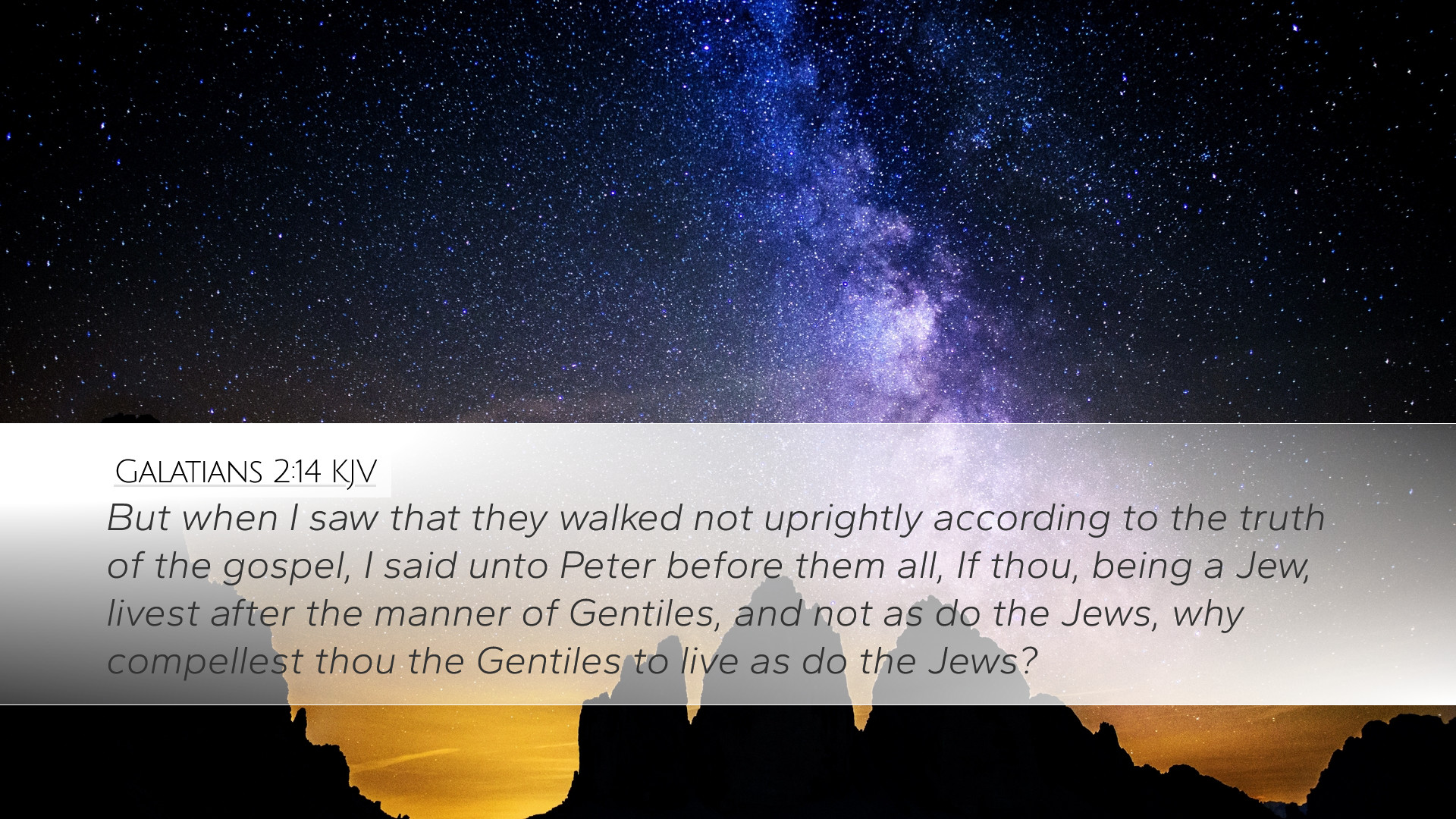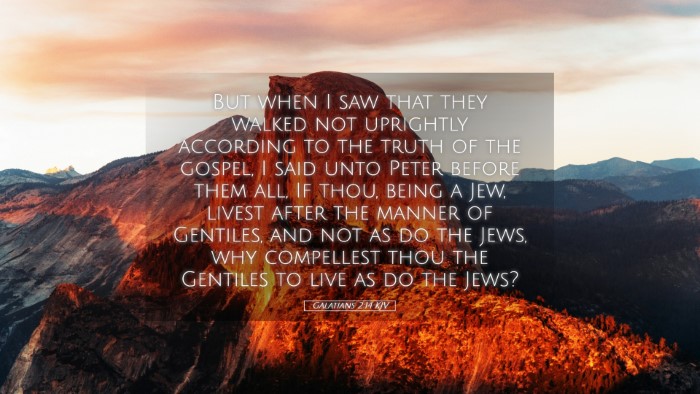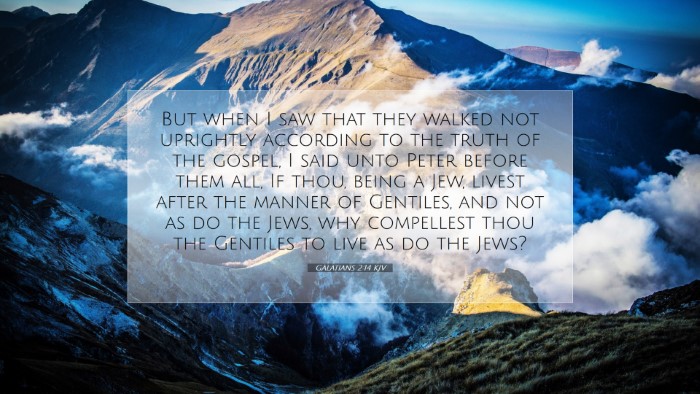Commentary on Galatians 2:14
Text of Galatians 2:14 (KJV): "But when I saw that they walked not uprightly according to the truth of the gospel, I said unto Peter before them all, If thou, being a Jew, livest after the manner of Gentiles, and not as do the Jews, why compelest thou the Gentiles to live as do the Jews?"
Introduction
The apostle Paul addresses a critical moment in the early church where the issue of Jewish customs and norms took a central role. Galatians 2:14 serves as a vector through which the apostle expresses his conviction regarding the unity and integrity of the gospel, particularly in relation to the behavior of Peter and the implications for both Jews and Gentiles in the faith.
Contextual Framework
This verse comes in the midst of a broader discourse on justification and the nature of Christian liberty. Paul highlights the tensions between Jewish and Gentile believers and emphasizes the dangers of hypocrisy within the church. Understanding this context is vital for grasping the full weight of Paul's admonition.
Verse Breakdown and Insights
1. Observational Insight
"But when I saw that they walked not uprightly..."
According to Matthew Henry, this observation reflects Paul’s keen discernment and pastoral concern for the truth of the gospel. It was not merely the actions of Peter that concerned Paul, but the broader implications of such behavior for the body of Christ.
2. Confrontational Approach
"...I said unto Peter before them all..."
Albert Barnes highlights that public rebuke was necessary when the actions of leaders contradicted the gospel's truth. Paul’s choice to confront Peter publicly underscores the seriousness of the issue at hand—one that could lead many astray if left unaddressed.
3. Theological Implications
"...If thou, being a Jew, livest after the manner of Gentiles..."
Adam Clarke emphasizes that Peter’s earlier acceptance of Gentiles indicated a shift from traditional Jewish observance. Paul’s question points to the inconsistency between belief and practice, affirming that behavior must align with the truths of the gospel.
4. The Call for Consistency
"...why compelest thou the Gentiles to live as do the Jews?"
This rhetorical question implies a grave issue of hypocrisy where Peter, who had embraced the freedom of the gospel, was now imposing burdens of the Jewish law back on the Gentiles. Paul’s argument is not merely about dietary laws but speaks to the essence of salvation and Christian fellowship, as indicated by both Henry and Clarke.
The Nature of Christian Conduct
This confrontation exemplifies the importance of living out the faith authentically. Both theologians highlight that conduct must reflect the truth of the gospel, which breaks down walls between Jews and Gentiles, reinforcing that we are all one in Christ (Galatians 3:28).
Applications for Today
Paul's interaction with Peter serves as a model for confronting discrepancies in the church today. Below are key applications:
- Accountability: It is vital for church leaders to hold one another accountable, ensuring their actions align with the teachings of Christ.
- Unity in Diversity: The church must embrace its diverse body while remaining unified in doctrine and the essence of the gospel.
- Faith and Action: There should be a seamless blend of faith and actions that reflect the transformative power of the gospel in all believers’ lives.
- Pastoral Responsibility: Pastors and leaders must address discrepancies in doctrine and conduct with love yet firmness, mirroring Paul’s model.
Conclusion
Galatians 2:14 encapsulates a critical moment of guidance and correction within early Christianity, establishing a foundation for understanding grace and truth in communal faith. By reflecting on this confrontation, modern scholars, pastors, and students can glean insight into the ongoing relevance of maintaining the integrity of the gospel within diverse church communities.


